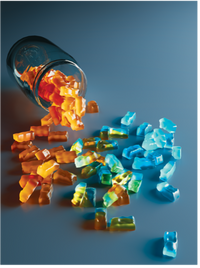
14 Feb Diversity of Cells Allow Colon Cancer to Resist Treatment and To Metastasize
MedicalResearch.com Interview with:

Dr. Mzoughi
Slim Mzoughi, PhD
Assistant Professor
Icahn School of Medicine at Mount Sinai
Department of Oncological Sciences
Hess Center for Science and Medicine
New York, NY 10029
MedicalResearch.com: What is the background for this study?
Response: Resistance to current cancer treatments remains one of the biggest challenges in oncology, often leading to cancer recurrence even after patients appear to be in remission. To overcome this obstacle, we first need to understand the mechanisms behind this resistance. For a long time, treatment resistance in colorectal cancer (CRC)—the second deadliest cancer worldwide—has been attributed to a specific group of cells known as LGR5+ cancer stem cells. However, recent studies suggest that simply targeting these cells is insufficient for achieving long-term cancer control.
That’s where our study comes in—to uncover why this is the case.
MedicalResearch.com: What are the main findings?
Response: Our study reveals that, early in tumor formation, LGR5+ cancer stem cells undergo molecular changes that render them unrecognizable. These changes cause them to resemble those found in the developing fetal intestine. In a way, this transformation reminds me of the legend of Edward Mordake, where these now fetal-like cells act as the “demon face” of cancer stem cells, resisting and surviving treatment.
Crucially, we have identified the mechanism driving this reversion to a fetal-like state, which we term oncofetal-reprogramming. Excitingly, when we targeted the oncofetal cell state alongside existing chemotherapy treatments, this significantly enhanced treatment effectiveness and extended survival in preclinical models, offering new hope for CRC patients.
MedicalResearch.com: Does this process occur in other cancers?
Response: The short answer is likely yes. Similar changes have been observed in various cancers, including prostate, lung, skin, pancreatic, and brain cancers, among others. Although the terminology used to describe these changes may differ, the underlying concept appears consistent: tumor cells often revert to an earlier, more primitive state, making them more difficult to target with traditional treatments. Identifying the drivers of this process is crucial. While our study has focused on CRC, expanding this research to other cancers could lead to the development of more effective therapies for a broader range of patients.
MedicalResearch.com: Does it also enhance the ability of colon cancer to metastasize?
Response: This is an excellent question, and the answer is still unclear. Metastasis is a complex process and may involve interactions between the classic LGR5+ and the reprogrammed oncofetal cancer stem cells states. More research is needed to understand how these various cell states contribute to cancer spread.
MedicalResearch.com: What should readers take away from your report?
Response: Our study represents a major advance in understanding the root causes of therapy resistance in colorectal cancer. By identifying the key cell states and molecular drivers involved, we have been able to target the resistant oncofetal cells with experimental drugs in preclinical models. This approach has proven effective in enhancing the efficacy of existing treatments and extending survival. This work is a promising step forward in improving outcomes for CRC patients. Our next goal is to develop new, safe drugs or repurpose existing FDA-approved therapies that can specifically target the “demon face” of colorectal cancer stem cells.
MedicalResearch.com: What recommendations do you have for future research as a results of this study?
Response: Cancer stem cells are a major driver of therapy resistance. Our findings highlight their ability to change behavior and shift between various molecular states – a phenomenon called phenotypic plasticity. This occurs not only in response to therapy but is also triggered early in tumor formation. Future research should reconsider cancer stem cell biology through this lens. Instead of viewing cancer stem cells as a uniform population, researchers studying other cancer types should focus on identifying the key factors driving phenotypic plasticity. By identifying the molecular drivers behind these changes, we can develop new strategies to target these cells more effectively across multiple cancer types.
MedicalResearch.com: If you were to visually depict your findings in an illustration, what would it look like?

Photo Credit: Gloria Fuentes, Scientific Visual Communicator, The Visual Thinker
Response: To keep the explanation simple for a broad audience, we made an illustration where the diseased intestines in colorectal cancer patients, depicted by the jar, generate various flavors (i.e., states) of cancer stem cells (gummies): the well-known LGR5+cells (orange), new and aggressive oncofetal cells (blue), and many in between. This diversity helps colorectal cancer grow and resist treatments, making it harder to fight.
MedicalResearch.com: Is there anything else you would like to add? Any disclosures?
Response: I would like to express my deepest gratitude to our talented team of scientists and all our collaborators. These discoveries would not have been possible without their dedication and support. Cancer affects us all, and we remain committed to working tirelessly to improve treatments for cancer patients and their families worldwide. I also want to extend my heartfelt appreciation to our funding partners, whose generous contributions enabled these discoveries.
Special thanks to Dr. Ernesto Cuccione, Dr. Megan Schwarz, Dr. Habiba Zorgati and Dr. Kevin Moahmmed for their invaluable contribution and Dr. Gloria Fuentes for creating the visual.
MedicalResearch.com: Is there anything else you would like to add? Any disclosures?
Response: I would like to express my deepest gratitude to our talented team of scientists and all our collaborators. These discoveries would not have been possible without their dedication and support. Cancer affects us all, and we remain committed to working tirelessly to improve treatments for cancer patients and their families worldwide. I also want to extend my heartfelt appreciation to our funding partners, whose generous contributions enabled these discoveries.
Special thanks to Dr. Ernesto Cuccione, Dr. Megan Schwarz, Dr. Habiba Zorgati and Dr. Kevin Moahmmed for their invaluable contribution and Dr. Gloria Fuentes for creating the visual.
References and additional resources:
Link to the research article (nature genetics website): https://www.nature.com/articles/s41588-024-02058-1
Link to the research briefing: (nature genetics website) https://www.nature.com/articles/s41588-025-02092-7
Link to the corresponding Nature Genetics February 2025 issue: https://www.nature.com/ng/volumes/57/issues/2
Dr. Mzoughi’s profile: https://profiles.mountsinai.org/slim-mzoughi
The information on MedicalResearch.com is provided for educational purposes only, and is in no way intended to diagnose, cure, or treat any medical or other condition.
Some links may be sponsored. Products are not warranted or endorsed.
Always seek the advice of your physician or other qualified health and ask your doctor any questions you may have regarding a medical condition. In addition to all other limitations and disclaimers in this agreement, service provider and its third party providers disclaim any liability or loss in connection with the content provided on this website.
Last Updated on February 14, 2025 by Marie Benz MD FAAD
